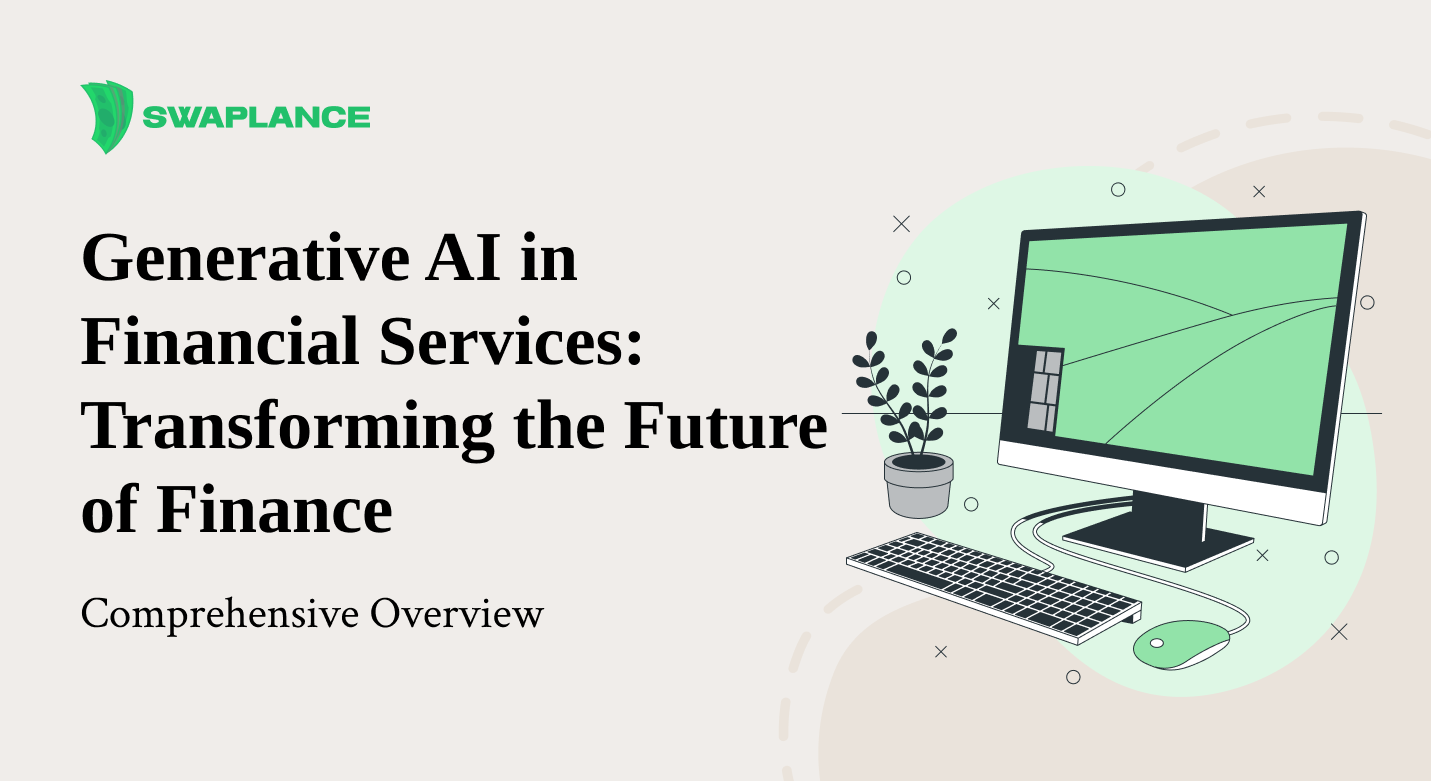
Generative AI in Financial Services: Transforming the Future of Finance
What is Generative AI in Financial Services?
Heard about generative AI in finance? It's not just a buzzword — it's already working. Generative AI in financial services refers to powerful language and multimodal models capable of generating text, insights, reports, and even scenario simulations. In simple terms, it processes documents, calls, chats, and transforms them into clear and accurate recommendations for business users.
Imagine an AI that reads a 100-page SEC report in seconds and instantly delivers a summary to your CFO. Convenient? Absolutely.
How is Generative AI Revolutionizing the Financial Industry?
What if your financial advisor worked 24/7, never got tired, and knew all internal policies, risks, and trends? That’s what generative AI offers. It’s already helping companies automate customer service, analyze markets, draft reports, and support internal teams.
Analysts note that implementing GenAI can increase forecast accuracy by 50% and productivity by 30–40%. Banks like JPMorgan, Citi, and Morgan Stanley are actively launching in-house AI assistants to streamline analysis and accelerate decision-making.
Want to dive deeper into how AI is transforming the industry? Read our article: Artificial Intelligence in Finance and Banking: Transforming the Industry.
Use Cases of Generative AI in Financial Services
1. Customer Service & Onboarding
Generative AI excels at first-line support, chatbots, FAQ automation, and even onboarding new clients.
For instance, a fintech startup in Singapore reduced average customer response time from 2 hours to just 5 minutes after launching a GenAI-powered bot. This not only improved customer satisfaction but also reduced the support team’s workload.
2. Financial Document Search & Reporting
AI quickly searches financial documents, generates summaries, and formulates insights. Analysts no longer need to sift through hundreds of pages manually.
3. Forecasting, FP&A & Insights Generation
Financial planning and analysis (FP&A) becomes more precise with generative AI. It provides scenarios, explains budget variances, and presents insights in plain language.
4. Trading & Market Intelligence
Traders use AI to analyze news, generate strategies, and draft investment notes — all faster and more efficiently.
5. Compliance, KYC/AML & Risk Management
Processes like KYC, fraud detection, and audits can be streamlined with GenAI, especially under increasing regulatory scrutiny.
6. Personalized Advisory & Wealth Management
AI enables scalable, personalized financial advice. GenAI-powered robo-advisors craft custom investment plans based on goals and risk profiles.
7. Expense Automation & Procurement
Platforms like Ramp automate budgeting and expense control, analyzing spend patterns in real time and predicting anomalies.
These innovations are already in use by top fintech leaders — explore more in: Top 10 Fintech Companies: Leading Platforms, Innovations, and Market Impact.
The Role of Generative AI in Banking
Banks are at the forefront of GenAI adoption. Goldman Sachs launched its AI assistant for employees, UBS introduced Client360, and Bank of America uses "Maestro" to support traders and advisors.
The use of generative AI in banking goes beyond automation — it's about transforming processes, mindset, and customer experience. No wonder it's one of the 10 Fintech Trends for 2025.
How Generative AI Enhances Financial Operations
AI brings significant advantages behind the scenes too:
- Productivity: Automating routine tasks saves up to 40% of employees' time.
- Forecasting & analytics: GenAI enhances financial models and budget accuracy.
- Personalization: Scalable delivery of tailored insights and recommendations.
- Risk mitigation: AI strengthens fraud detection and compliance audits.
That said, AI is not a magic wand. It must be deployed thoughtfully, with ethical safeguards and proper data governance.
Conclusion
Generative AI is more than a tech trend. It’s already reshaping finance. Companies that adopt it early gain advantages in speed, accuracy, and customer service.
Want to stay ahead of the curve? Start small — test GenAI in one process, adapt your approach, and unlock new possibilities. The future of finance is here — and it's smarter than ever.
Common questions
-
What are the applications of generative AI in financial services?It analyzes large volumes of data — from reports to customer chats — to generate insights, summaries, and strategic recommendations.
-
How does AI help improve the financial industry?AI speeds up operations, enhances forecasting, reduces errors, and improves customer experience — from faster support to smarter planning.
-
How is generative AI used in banking?Banks use it for document automation, customer interaction, market research, and assisting advisors and traders in real time.
-
What are the benefits of generative AI for finance?Time savings, higher forecasting accuracy, better service, cost reduction, and scalable personalization — all with competitive advantages.
 Mark Petrenko
Mark Petrenko 
